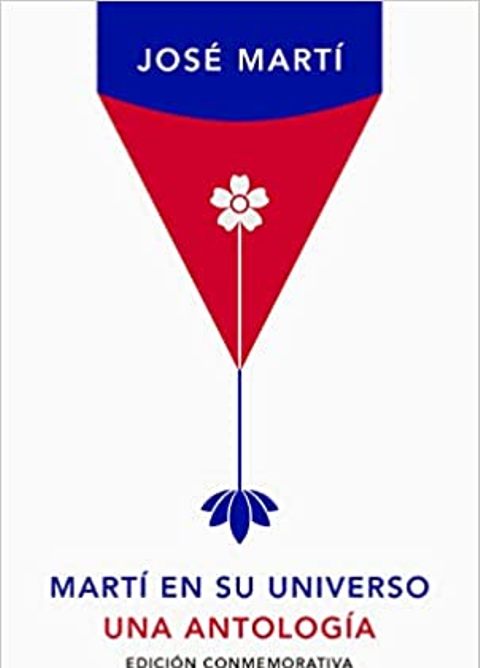"His tenderness was nourished by an enchanted water table, in territories located to the south and the north. As he traveled, alternating the glances of eagle and dove, he grew new branches and roots, as if destined by the eaves to meditate on the sharpest and softest material edges. He was a colossal colossus".
The above quote by the eminent Cuban poet and novelist José Lezama Lima refers to the Apostle of Cuba, José Martí, and can be read in a formidable anthology that the Royal Spanish Academy (RAE) and the Association of Spanish Language Academies (ASALE) have published as part of their commemorative editions dedicated to Spanish-American classics in accessible volumes.
The proposal entitled Martí en su universo. Una antología, under the Alfaguara imprint, brings together a selection of the Cuban National Hero's best writings and includes extraordinary assessments by great poets and connoisseurs of the figure of the Maestro such as Rubén Darío, Juan Ramón Jiménez, Gabriela Mistral, Cintio Vitier, José Lezama Lima, Roberto Fernández Retamar, Roberto Méndez Martínez, among others.
The unique volume was presented on Tuesday at the RAE's institutional headquarters in Madrid, Spain, with the participation of Santiago Muñoz Machado, director of the RAE and president of ASALE; Rogelio Rodríguez Coronel, director of the Cuban Academy of Language; the writer and winner of the Cervantes Prize, Sergio Ramírez, member of the Nicaraguan Academy of Language, and Pilar Reyes, editorial director of Alfaguara.
With this text, they have sought to rescue an indispensable author of the 19th century in Latin America and to bring him to readers today through a selection of his best texts and poems.
"Martí represents the commitment that writers make. Of those authors who never renounce the messages of the public highway," commented writer Sergio Ramírez, winner of the Cervantes Prize for Literature.
According to the novelist, "we cannot explain Martí without his yearning for Cuban independence, and without the political struggle he waged from the United States to bring Cubans together around the flag."
On this point, Sergio Ramírez, who knows well what politics is and what it is to serve literature, said that it is crucial to understand "the debate" that "he waged as an apostle of Cuban Independence without renouncing being a great writer."
This volume is preceded by texts by Rubén Darío, Gabriela Mistral and Juan Ramón Jiménez. The former defines him as a "man of a nervous temperament, slim, with lively and kind eyes." But what stood out about him was "his proverbial culture, his intact and crystalline honor; whoever came close to him left loving him.
For her part, Mistral made a point of underlining the greatness of his careful style. After remarking that he was an "autonomous voice," she asserted, not without admiration or a touch of irony, that "it seems that Martí's essential originality is a case of vitality in general and then of tropical vitality."
Meanwhile, Juan Ramón Jiménez, winner of the Nobel Prize for Literature, pointed out that 'Martí, with his exile trips (New York was to the Cuban exiles what Parías was to the Spaniards), incorporated the United States into Latin America and Spain better than any other Spanish-language writer, in the most vivid and true sense.'
Poet, essayist, diplomat, and politician, the Cuban José Martí is one of the most important Latin American writers in 19th-century literature in Spanish. He was a precursor of the modernism that would cross the Atlantic Ocean to settle in Spain.
He was a man of vast culture and a capacity for the written word and oratory that exceeded the norm, and who left works such as 'Ismaelillo' (1882), 'Versos libres' (1882), 'Versos sencillos' (1891), 'Edad de oro' (1878-1882) and 'Flores del destierro' (1878-1895).
The publication of Martí en su universo. Una antología is an essential tool of thought because, through its pages, the public will get to know Martí the thinker and poet through the different open doors of his vast oeuvre.
(With information from the newspaper La Razón)


Deje un comentario